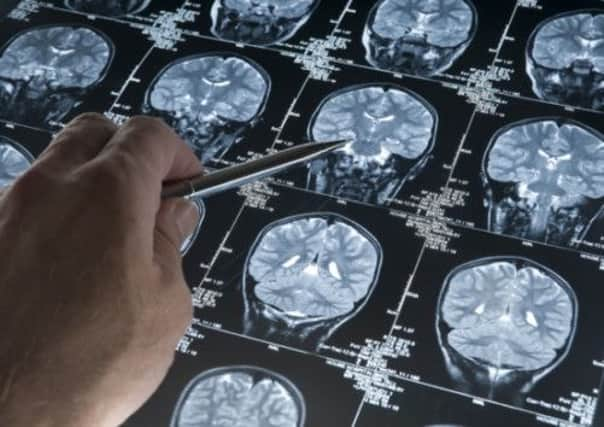Alzheimer’s breakthrough ‘may be too good to be true’


The cancer drug bexarotene, marketed as Targretin, was said to reverse the build-up of plaques which have been linked to Alzheimer’s.
A high-profile 2012 report said the drug quickly removed most of the plaques in mice and rapidly reversed the pathological, cognitive and memory deficits related to the onset of Alzheimer’s.
Advertisement
Hide AdAdvertisement
Hide AdThe results stunned the scientific community but some warned they seemed “too good to be true”. At the time Dr Gary Landreth, a neuroscientist at Case Western Reserve University in Cleveland and co-author of the 2012 study, described his team’s findings as “unprecedented”.
Now, researchers say they have been unable to replicate the results of the original study and doubts its findings.
Researchers at the University of Chicago, Northwestern University, Massachusetts General Hospital, Washington University in St Louis and University of Tubingen in Germany, jointly stated: “The drug has no impact on plaque burden.”
Professor Sangram Sisodia, of the University of Chicago, said he and his colleagues were curious about the initial report in 2012.
He said: “We were surprised and excited, even stunned, when we first saw these results presented at a small conference.
“The mechanism of action made some sense, but the assertion that they could reduce the areas of plaque by 50 per cent within three days, and by 75 per cent in two weeks, seemed too good to be true.
“We all went back to our labs and tried to confirm these promising findings.
“We repeated the initial experiments – a standard process in science. None of us found anything like what they described in the 2012 paper.”
Advertisement
Hide AdAdvertisement
Hide AdThe researchers found no effects on plaque burden in three different strains of mice that were treated with bexarotene. They say that the discrepancy is not only disappointing but also raises concern for patient safety.
The drug was approved for treating a type of skin cancer, meaning it is also available by prescription for “off label” uses.
But it has never been tested as a treatment for Alzheimer’s in humans and has side effects including headaches, vomiting and liver problems.
Professor Robert Vassar, of Northwestern University, said: “Anecdotally, we have all heard that physicians are treating their Alzheimer’s patients with bexarotene, a cancer drug with severe side effects.
“This practice should be ended immediately, given the failure of three independent research groups to replicate the plaque-lowering effects of bexarotene.”
But other experts said that the cognitive effects on the mice had been replicated, even if the effects on plaque had not.
University of Pittsburgh professor Rada Koldamova said: “We believe these findings make a solid case for continued exploration of bexarotene as a treatment for Alzheimer’s disease.”